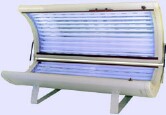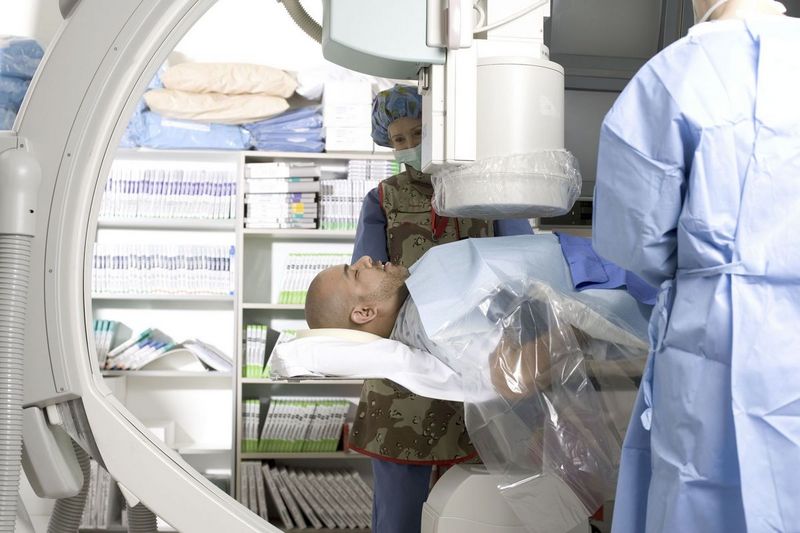
FRIDAY, Aug. 3 (HealthDay News) — Sunburn is a common consequence of using indoor tanning beds, according to a new study.
Researchers tracking female college students’ tanning bed use found that one in five ended up with a sunburn and said more safeguards are needed to prevent the damaging ultraviolet exposure, which can lead to skin cancer.
Researchers from the Cancer Institute of New Jersey, East Tennessee State University, Pennsylvania State University and Northwestern University examined the use of indoor tanning beds by nearly 200 women attending four U.S. colleges.
“What our findings show is that indoor tanning, advertised by the indoor tanning industry as a ‘controlled’ ultraviolet radiation exposure resulting in minimal risk of burn, results in quite the opposite,” study author Jerod Stapleton, a behavioral scientist at the Cancer Institute of New Jersey, said in an institute news release. “Despite these claims, our results show that sunburn is a common occurrence related to tanning bed use. This is particularly worrisome given data that suggest sunburns increase future skin cancer risk.”
All the women in the study said they had used an indoor tanning bed at least once in the past year. They described their indoor tanning activity for the previous two weeks: how long their sessions lasted, whether they wore goggles and if the sessions caused them to develop red skin or a sunburn.
During the following 12 weeks, the women kept diaries documenting when they used a tanning bed and how often they got a sunburn as a result.
The women reported a more than 1,400 tanning sessions. Thirty-seven percent of the women did not use an indoor tanning bed, while another third of the women used a tanning bed up to 10 times. Twelve percent of the women had more than 20 indoor tanning sessions.
Two-thirds of the women reported getting at least one sunburn. Half reported two or more sunburns and 36 percent said they got three or more sunburns. The length of the sessions did not increase the risk for sunburn, the researchers noted.
Women who reporting the highest average number of sessions before the study took place had a lower risk of sunburn. The researchers suggested that they might have learned to adjust their tanning bed use to prevent burning. They cautioned, however, that no ultraviolet exposure is safe.
“The biology of the skin-tanning response shows that any tanning or darkening of the skin is a sign of skin damage, and refraining from indoor tanning should be an overall goal for users to protect their skin’s health and appearance,” said Stapleton, who is also an assistant professor of medicine at the University of Medicine and Dentistry of New Jersey. “However, health professionals know there are many indoor tanning users who refuse to give it up. In developing interventions for this population, clinicians may want to focus on the importance of avoiding sunburn as part of a harm-reduction approach, as previous intervention methods have not focused on that aspect before.”
In 39 percent of the indoor tanning sessions, the women did not wear goggles to protect their eyes from radiation, which the researchers said could put them at risk for eye injuries.
People of all ages should be discouraged from using indoor tanning beds, the researchers said, particularly young people, whose skin is more prone to damage from ultraviolet exposure.
A study limitation was the possibility of errors in the women’s diaries, the researchers noted.
The study was published online July 18 in the journal Translational Behavioral Medicine.
More information
The U.S. Food and Drug Administration has more about the risks of indoor tanning.

